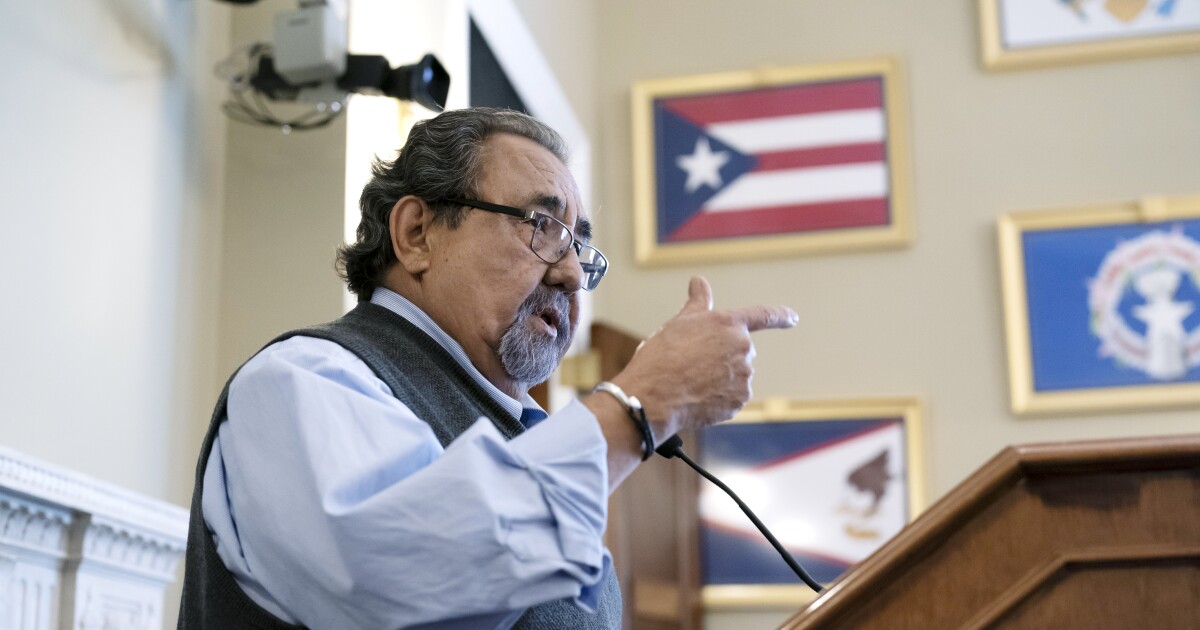

Critics left and right are taking up arms against the Manchin-Schumer permitting reform deal, arguing that Congress owes neither Democratic leadership nor Sen. Joe Manchin a victory that serves the West Virginia Democrat’s interests.
The deal agreed to between Manchin and Senate Majority Leader Chuck Schumer (D-NY) tied the Democrats’ Inflation Reduction Act to “comprehensive permitting reform legislation” and called for it to be passed before the end of the fiscal year — that is, before Oct. 1. Manchin’s office has released a list of broad permitting provisions to which he and leadership have agreed that would support more speedy permitting for both green energy and fossil fuel projects, including the Mountain Valley natural gas pipeline in West Virginia.
Unlike the Inflation Reduction Act, which was passed through a special process that allowed the Democrats to avoid a GOP filibuster, permitting reform legislation would require Republican help to clear the 60-vote threshold in the Senate, meaning that it would need to gain support from both parties. But factions on both sides of the aisle are outlining opposition to such a vote.
AN END TO THE ‘SOLAR COASTER,’ THANKS TO MANCHIN-SCHUMER BILL?
Some environmental groups, whose lobbying for new penalties on fossil energy as part of the Democrats’ energy and climate change legislation ultimately lost out to Manchin’s more centrist pro-fossil fuel preferences, are accusing him of stringing his party out and argue that permitting reform will be bad for the environment.
Among the permitting reform provisions under consideration is a proposal to direct the president to designate a list of at least 25 high-priority infrastructure projects deemed to be of “strategic national importance” for which permitting should be prioritized. That would include green energy and fossil fuel projects, according to the Manchin list.
The deal also proposes to impose a statute of limitations on litigation against projects, something environmental groups have frequently and successfully utilized to delay new oil and gas projects.
Most notably, Manchin proposes to require relevant federal agencies to approve permitting the Mountain Valley Pipeline, which is mostly complete and connects West Virginia’s shale gas to neighboring Virginia but has faced numerous challenges and permitting delays.
Jamal Raad, the executive director of environmental NGO Evergreen Action, said Monday that the permitting proposal would “gut America’s bedrock environmental laws.”
Evergreen backed the Inflation Reduction Act, but Raad said Congress’s climate hawks “don’t owe Joe Manchin their votes on this backroom scheme.”
“There is simply no excuse for Democrats who care about the climate to support a toxic giveaway that amounts to little more than a fossil fuel wish list,” he said in a statement.
Wenonah Hauter, the executive director of green group Food & Water Watch, which opposed the Inflation Reduction Act because of its oil and gas provisions, called the permitting agreement an “awful ‘side deal’ to fast track fossil fuel permitting” that would “doom any progress that might result from the passage of [the IRA].”
Resistance to the permitting deal extends to the halls of Congress. Rep. Raul Grijalva (D-NM), who heads the Natural Resources Committee, has expressed wariness about the reform deal. He and some colleagues plan to encourage leadership to bring up any permitting reform as stand-alone legislation rather than tuck it into “must-pass” legislation such as a continuing resolution, which is used as a temporary measure to fund the government.
“We’re going to start early to urge a separate vote,” Grijalva told The Hill, where he also questioned, “Why should Democrats deliver the Republican agenda on these issues when they’re unified in voting against everything?”
Republicans, in general, support permitting reforms such as the imposition of time limits on environmental reviews. They have blamed the Biden administration’s National Environmental Policy Act implementation guidance, which pulled back some Trump-era reforms and broadened the scope of agencies’ environmental reviews, for adding to project delays.
But the link between the partisan Inflation Reduction Act and the permitting deal, as well as the prospective handout to Manchin in the form of the Mountain Valley Pipeline, miffed some Republicans. Sen. Lindsey Graham (R-SC) called it a “payback scheme” he wouldn’t support.
“Sen. Manchin, if you think you’re going to get 60 votes to get the sweeteners that can’t be done in reconciliation, you need to think long and hard about what you’re doing,” Graham said during a press conference on Aug. 5 before the Senate took up and passed the Democrats’ bill.
Republicans had struck out mostly on their own a few days before, passing Sen. Dan Sullivan’s (R-AK) Congressional Review Act resolution to nullify the Biden NEPA rule. Members framed the vote as a litmus test to gauge how serious their colleagues across the aisle were about supporting reforms.
CLICK HERE TO READ MORE FROM THE WASHINGTON EXAMINER
Democrats in Congress broadly supported the bipartisan infrastructure bill, which included NEPA reforms. Some have gone on record supporting the idea of pursuing additional reforms to speed up projects, but Senate Democrats voted nearly en masse against Sullivan’s resolution. Manchin was the sole Democrat to join Republicans in the vote.
“I hope every Republican that voted for this legislation today will support the bipartisan permitting reform bill when it comes before the Senate in September,” he said after the vote.







